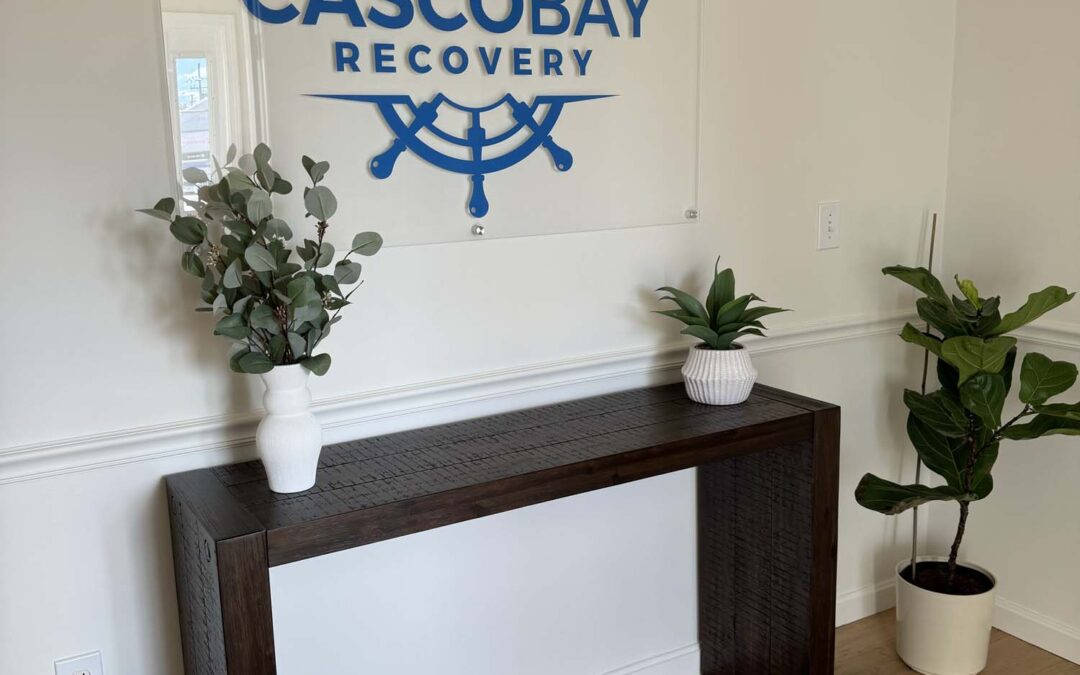Risks, Support, and Resources
Nestled within the picturesque coastal towns in Maine, the fishing industry isn’t just a profession—it’s a way of life. From lobstering off the rocky shores to hauling in the day’s catch from the open ocean, the livelihoods of countless Mainers are deeply intertwined with the rhythms of the sea. Yet, amid the salt spray and the sound of gulls, there exists a silent struggle: substance abuse. Exploring the complexities of substance abuse among these fishing communities can help uncover the risk factors and challenges faced by those who work in this industry. Highlighting the critical role of support, resources, and coping mechanisms is crucial in the aid of this condition that plagues this population.
Risk
The fishing industry presents a unique set of challenges that contribute to the prevalence of substance abuse among its workers. Long hours spent at sea, battling the elements, and hauling in heavy nets with the day’s catch produce a toll on both body and mind. The isolation from support systems on land, along with the relentless pressure to meet quotas and provide for one’s family, can lead to feelings of stress, anxiety, and loneliness. Fishing is a physically demanding job that can result in injuries or chronic pain from repetitive tasks, and accidents at sea. Some fishermen may misuse prescription pain medications or turn to illicit drugs as a way to manage pain or cope with injuries. Moreover, the ever-present specter of economic uncertainty looms large, adding a layer of strain to an already demanding profession. In such an environment, the allure of substance abuse as a coping mechanism can be all too tempting, offering a reprieve from the brutal demands of life at sea.
Support
Recognizing the signs of substance abuse and providing avenues for support are crucial steps in addressing this issue within the community. Fishermen working in isolated ocean environments for extended periods should be educated about the risks of substance abuse and the importance of mental well-being.
Three main signs of substance abuse include:
- Changes in Behavior: This can include sudden mood swings, agitation, irritability, secretive behavior, social withdrawal, or a decline in responsibilities and obligations.
- Physical Signs and Symptoms: These may vary depending on the substance but can include bloodshot eyes, dilated or constricted pupils, tremors, slurred speech, impaired coordination, changes in appetite or weight, and poor hygiene.
- Social and Interpersonal Problems: Substance abuse often leads to conflicts with family members, friends, or colleagues, as well as difficulties in maintaining relationships and fulfilling social obligations. It may also result in financial problems, legal issues, and a decline in performance at work.
A fisherman’s training should not only teach them how to tie a knot but also include recognizing the warning signs of substance abuse. Before going out to sea, they should establish easy access to support services so that the issue can be tackled early. By promoting awareness, providing resources, and creating a culture of openness and understanding they can better navigate the challenges of their work environment and reduce the risks associated with substance abuse.
Coping Mechanisms and Resources
In addition to formal support services, implementing coping mechanisms and preventative measures can empower individuals in fishing communities to prioritize their mental and physical health. Encouraging open communication and camaraderie can create a support network that extends beyond the confines of the boat or the dock. Promoting healthy lifestyle choices, such as regular exercise, proper nutrition, and adequate sleep, can help bolster resilience and fortify against the temptations of substance abuse. Furthermore, offering training on stress management techniques and mindfulness practices can provide fishermen with the tools they need to navigate the challenges of life at sea with grace and resilience.
Some effective coping strategies:
- Seek Professional Help: Encourage fishermen to seek support from mental health professionals, addiction counselors, or therapists who specialize in substance abuse. These professionals can provide guidance, support, and therapy tailored to their specific needs.
- Join Support Groups: Participating in support groups such as Alcoholics Anonymous (AA) or Narcotics Anonymous (NA) can provide a sense of community and belonging. Connecting with others who have similar experiences can offer valuable insights, encouragement, and accountability.
- Develop Healthy Habits: Motivate fishermen to focus on improving their overall well-being by adopting healthy habits. This includes regular exercise, proper nutrition, adequate sleep, and stress-reduction techniques such as mindfulness meditation or deep breathing exercises.
- Engage in Hobbies and Activities: Inspire fishermen to find positive outlets for their time and energy by engaging in hobbies and activities that bring them joy and fulfillment. Whether it’s fishing for leisure, painting, playing music, or spending time with loved ones, engaging in meaningful activities can help distract from cravings and provide a sense of purpose.
- Practice Stress Management: Fishing can be a physically and mentally demanding profession, leading to high levels of stress. Teach fishermen effective stress management techniques such as deep breathing exercises, progressive muscle relaxation, or visualization techniques to help them cope with stress in healthy ways.
- Develop Healthy Coping Skills: Educate fishermen to identify and develop healthy coping skills to replace substance use. This may include journaling, practicing gratitude, engaging in creative expression, or seeking solace in nature. By learning to cope with emotions and triggers in constructive ways, fishermen can build resilience and reduce reliance on substances.
- Establish Boundaries: Support fishermen in establishing boundaries and limit exposure to environments or individuals that may trigger substance use. This may involve avoiding bars or social gatherings where alcohol or drugs are present, or setting boundaries with friends or family members who may enable or encourage substance use.
- Stay Connected: Help fishermen maintain strong connections with supportive friends, family members, and colleagues. Building a network of supportive relationships can provide a sense of belonging and reduce feelings of isolation, which are common triggers for substance abuse.
By incorporating these coping mechanisms into their daily lives, fishermen can better manage the challenges of substance abuse and work towards a healthier, more fulfilling future. It’s essential to provide ongoing support and encouragement as they navigate the journey to recovery.
Resources for Support
Casco Bay Recovery offers multiple resources for substance abuse such as,
- Inpatient and outpatient care: A live-in or live-out program providing rehabilitation with various therapy sessions throughout the day.
- Medical Detox: A medically assisted treatment that helps patients come off substances comfortably and with guidance.
- Individual therapy: Sessions with a trained professional to work through issues on a one-on-one basis.
Substance abuse among Maine’s fishing communities is a multifaceted issue that requires a comprehensive and compassionate approach. By addressing the unique risk factors, providing accessible support resources, and promoting coping mechanisms, we can work together to create a healthier and more resilient fishing industry. Let us prioritize the well-being of our communities and ensure that no one navigates the treacherous waters of substance abuse alone. Contact Casco Bay Recovery today and together, we can cast a lifeline to those in need and chart a course toward a brighter, healthier future.








